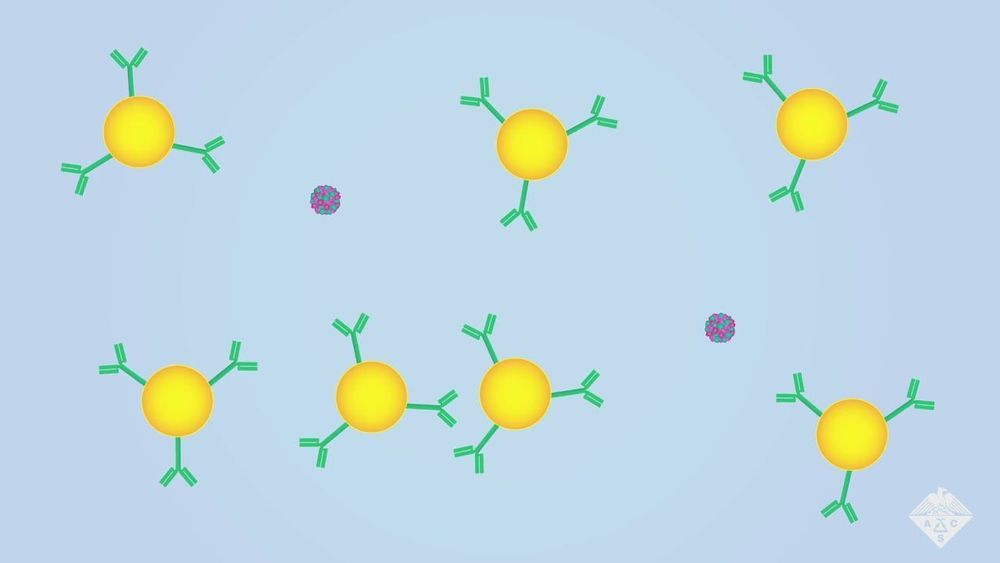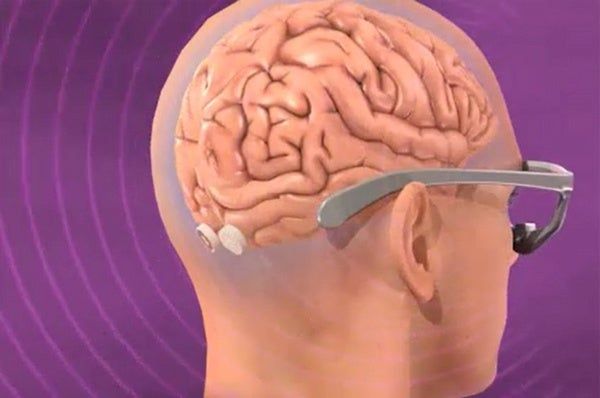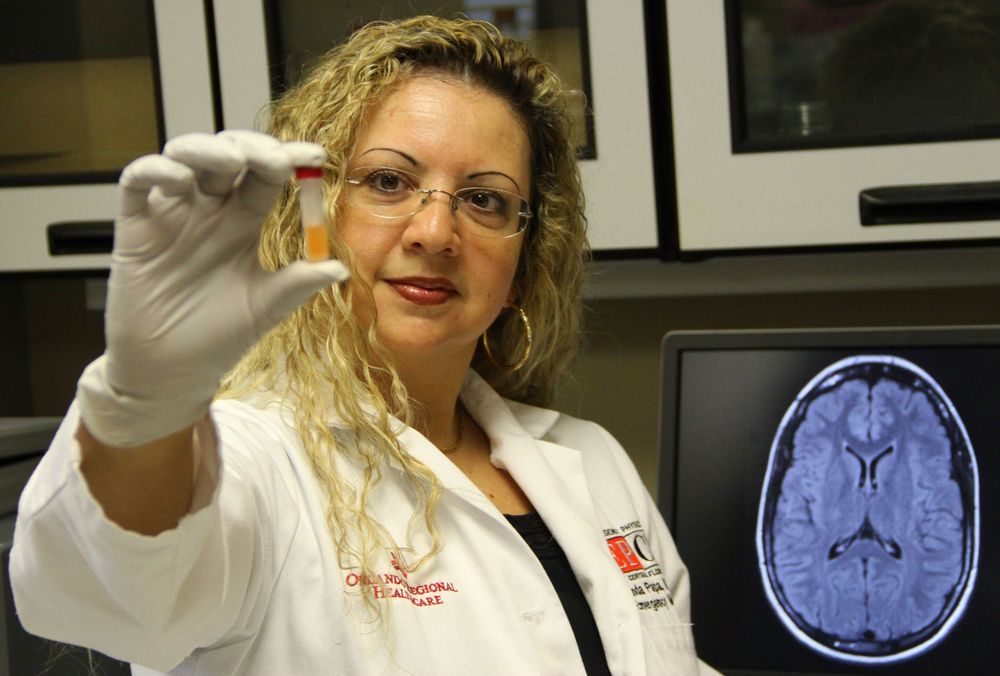Archive for the ‘health’ category: Page 291
Aug 29, 2019
Prof Ruth Itzhaki — University of Manchester — Viral Connections to Alzheimer’s — ideaXme Show — Ira Pastor
Posted by Ira S. Pastor in categories: aging, bioengineering, biotech/medical, complex systems, DNA, genetics, health, life extension, neuroscience, science

Aug 28, 2019
English man becomes first international patient in Spanish Listeria outbreak
Posted by Genevieve Klien in categories: biotech/medical, food, health
The first international case of listeriosis linked to an outbreak in Spain that has sickened almost 200 people and killed two is being investigated by British public health officials.
The outbreak has been traced to contaminated chilled pork products under the brand “La Mechá” made by Magrudis, based in Seville. The potential infection is in a man from England who ate the product in Seville in mid-August. He was treated at a hospital in France before returning to the United Kingdom.
A Public Health England spokeswoman told Food Safety News the agency does not disclose patient details so she was not able to provide information on the age of the man or where in England he lives.
Aug 28, 2019
Police urge residents in Texas town to vacate homes during nearby SpaceX rocket launch
Posted by Fyodor Rouge in categories: Elon Musk, habitats, health, space travel
Police in a small Texas community have recommended that residents temporarily vacate their homes on Monday while Elon Musk  Elon Reeve MuskUS Space Command: A vision for the final frontier The paradox of superstars Hillicon Valley: US, France reach deal on tech tax | FEC vice chair resigns | Move leaves agency unable to vote on actions | Groups seek net neutrality pledge from 2020 Dems | Australia eyes blocking extremist content MORE ’s SpaceX attempts an experimental launch of a Mars rocket prototype.
Elon Reeve MuskUS Space Command: A vision for the final frontier The paradox of superstars Hillicon Valley: US, France reach deal on tech tax | FEC vice chair resigns | Move leaves agency unable to vote on actions | Groups seek net neutrality pledge from 2020 Dems | Australia eyes blocking extremist content MORE ’s SpaceX attempts an experimental launch of a Mars rocket prototype.
A public safety notice was issued to residents of Boca Chica, a town on the southern tip of Texas with houses within two miles of SpaceX’s launch pad for the Starhopper rocket, Business Insider reported on Sunday.
A county sheriff reportedly went door-to-door on Saturday to deliver the notice to approximately 20 households, warning of possible shattered windows and “potential risk to health and safety.”
Aug 28, 2019
The Regenerage Show — Host _ Ira Pastor — Episode 1 — “What are Age and Aging?”
Posted by Ira S. Pastor in categories: aging, bioengineering, biotech/medical, business, DNA, health, life extension, neuroscience, science, transhumanism

Aug 27, 2019
The Elon Musk of China: Dr. Wang Jian of BGI
Posted by Klaus Baldauf in categories: business, Elon Musk, health, space
There are many famous innovators in the Western world who have a bold vision, go after massively transformative projects and despite investor and public criticism deliver on their promises. Jeff Bezos, Larry Page, Sergey Brin, Mark Zuckerberg, and Steve Jobs are household names who went against the current, pushed their vision through and succeeded touching everyone on the planet and making the world a better place.
Since the passing of Steve Jobs, the crown of the bold inventor, innovator and high-tech businessman passed to Elon Musk who despite frequent criticism is the undisputed leader of disruptive entrepreneurship. However, when I ask some of the most informed westerners in my network to recall one global entrepreneur with an Asian name disrupting their life in the same positive way and at the same scale as Elon, very few can recall anyone besides Jack Ma, Dr. Lee Kai-Fu, or Dr. Ge Li. Even fewer would be able to name the exact contribution these people made to their health and wellbeing. For example, few people know that Dr. Ge Li’s companies that act as global open research platforms assisted in the discovery of many of the cutting-edge life-saving treatments that are benefiting everyone on the planet. There will be books written about the transformative role of these people in the future and, hopefully, Netflix documentaries.
But there are many great innovators and entrepreneurs, who are working on bold new ideas and technologies that will change everyones’ life in a very impactful and positive way but are not known to the general public in the West. These innovators often face criticism from the investor community which wants to see business models and projects that they can understand, projects they can believe and get the immediate returns. Like Elon Musk they face a lot of resistance but over time prevail and will impress every one of us. They will go down in history as pioneers and their names will be known in every household.
Aug 27, 2019
A New Type of Visual Prosthetic
Posted by Paul Battista in categories: biotech/medical, cyborgs, government, health, neuroscience
In normal vision, light falls on the retinas inside the eyes, and is immediately transduced into electrochemical signals before being uploaded to the brain through the optic nerves. So you do not see light itself, but the brain’s interpretation of electrochemical signals in the visual parts of the brain. It follows that, if your eyes do not work, but your brain is stimulated just so, your visual neurons will activate (and you will be able to see) just the same as if your eyes were in perfect condition.
Sounds easy, but can we do that? Building on decades of research in visual neuroscience, my lab, in collaboration with Susana Martinez-Conde’s, has now conducted some of the studies that validate this idea, completing some of the most important preliminary steps towards a new kind of visual prosthetic.
Francis Collins, the Director of the National Institutes of Health, has just posted a blog that highlights our approach. He took notice of our work when we first presented it at this year’s meeting for the Principal Investigators of the BRAIN Initiative—the NIH led government funding initiative meant to spur research along on topics like brain implants. The BRAIN Initiative funds several agencies including the NIH, including the National Science Foundation, who kindly funded the grant driving our research thus far.
Aug 27, 2019
‘Antibiotic apocalypse’ New diseases and antibiotic resistance major threat to humanity
Posted by Genevieve Klien in categories: biotech/medical, evolution, health
Dubbed ‘antibiotic apocalypse’, the antibiotic resistant superbugs have become a massive cause for concern for health professionals as their numbers continue to rise. Such is the worry around antibiotic superbugs that experts believe that they will claim 10 million lives by 2050, with 700,000 people dying a year after catching the infections, according to a recent report from the American Chemical Society’s Enviromental Science and Technology Journal. Humans, especially in the West, have become so reliant on antibiotics to help cure illnesses that many of the bacteria that they are trying to fight have become resistant to the drugs through evolution.
Aug 27, 2019
Using a smartphone to detect norovirus
Posted by Saúl Morales Rodriguéz in categories: bioengineering, biotech/medical, health, policy

A little bit of norovirus—the highly infectious microbe that causes about 20 million cases of food poisoning in the United States each year—goes a long way. Just 10 particles of the virus can cause illness in humans. A team of University of Arizona researchers has created a simple, portable and inexpensive method for detecting extremely low levels of norovirus.
Jeong-Yeol Yoon, a researcher in the Department of Biomedical Engineering; Soo Chung, a biosystems engineering doctoral student who works in Yoon’s Biosensors Lab; and Kelly A. Reynolds, Chair of the Department of Community, Environment and Policy in the Mel & Enid Zuckerman College of Public Health, led the project. The team published their results in ACS Omega, the official journal of the American Chemical Society, and Yoon is presenting the research at the ACS Fall 2019 National Meeting & Exposition in San Diego this week.
Aug 26, 2019
Study: Blood test detects concussion and subconcussive injuries in children and adults
Posted by Paul Battista in categories: biotech/medical, health, neuroscience
In one of the largest studies of its kind, researchers at Orlando Health are making new progress in finding ways to detect a traumatic yet sinister brain injury—and getting closer to preventing further damage.
Subconcussive injuries often show no symptoms or immediate effects, but can cause wear and tear on the brain over time with repeated injuries. The latest study, published in the journal BMJ Paediatrics Open, includes more than 700 emergency room patients—children and adults. The study gets us closer to developing a standard blood test to spot these injuries as early as possible.
“A unique feature of this study is that it includes patients who hit their heads but have no symptoms,” said Linda Papa, MD, lead author of the study and emergency medicine doctor at Orlando Health. “This group is rarely—if ever—included in biomarker studies.”














